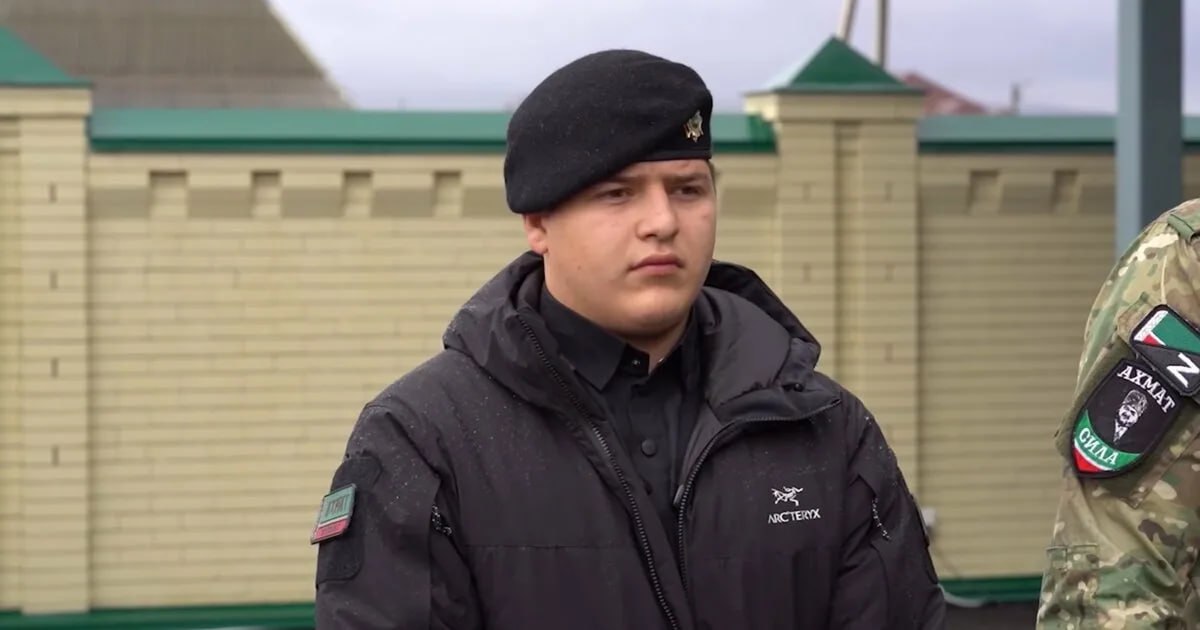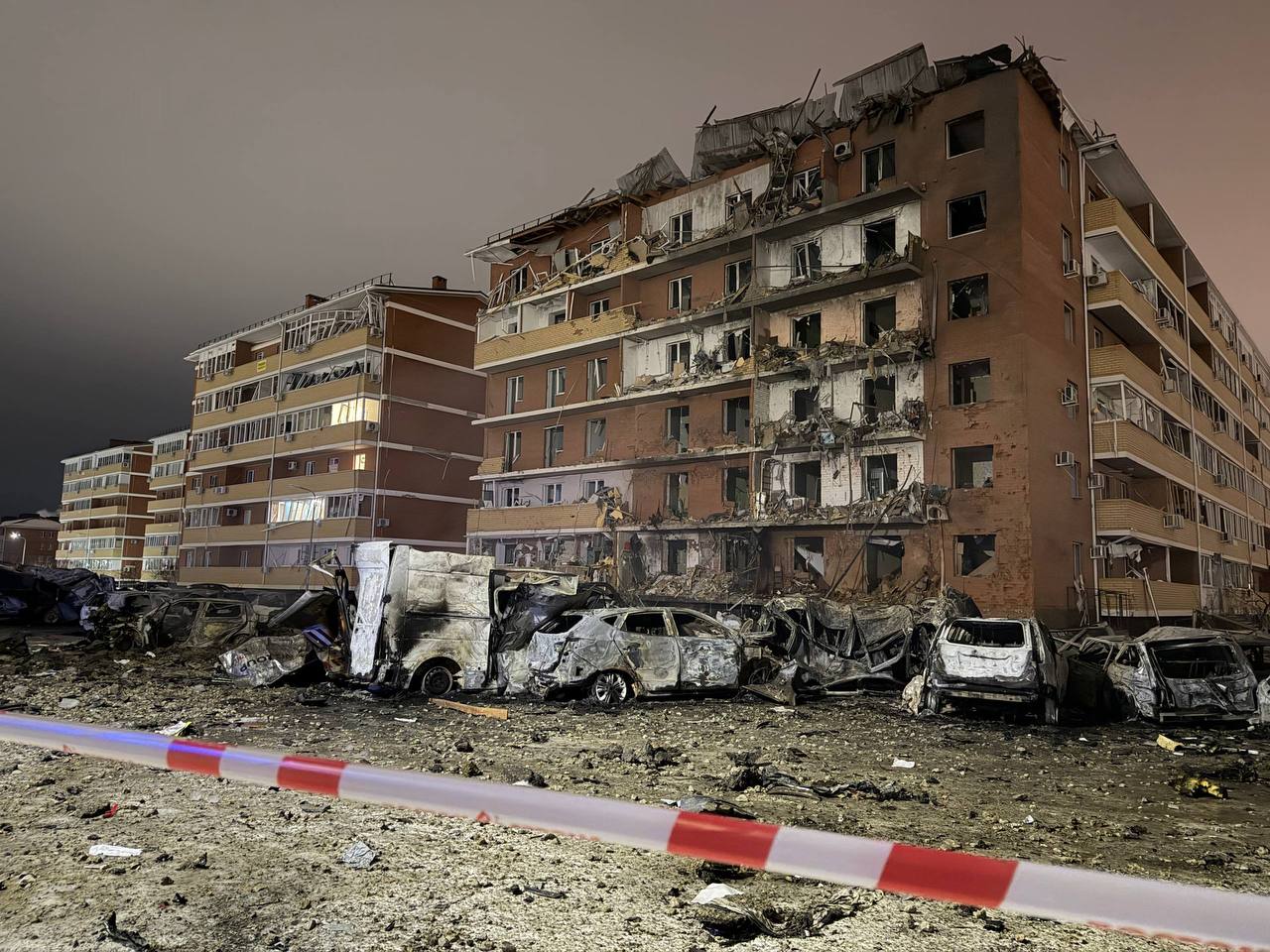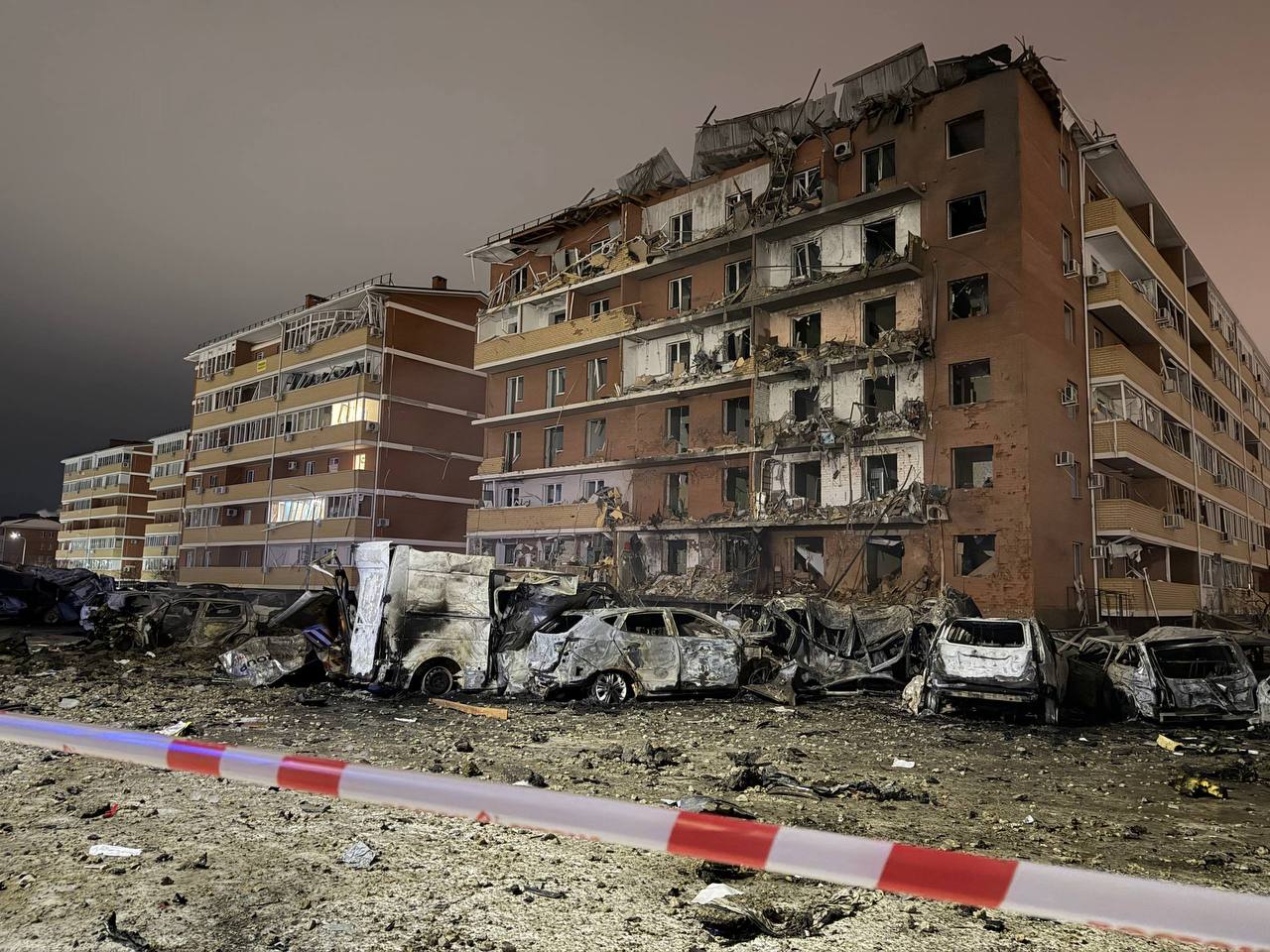The health of Adam Kadyrov, the son of Chechen leader Adam Kadyrov, who was injured in a traffic accident in Grozny, is improving, according to the Agency, citing sources close to the Russian presidential administration and the Chechen authorities.

December 1, 2001
***
On the night of December 1, three Russian military men burst into a house on the outskirts of the village of Mayrtup. They ordered Yunus Shamsuevich Visaev, a refugee temporarily living there from the village of Khidi-Khutor, to take them for vodka. He had to start his Niva and drive to the opposite edge of the village. In the dark, the car fell into a ditch, and the military, accusing the driver of doing it on purpose, fired several times from a machine gun. Then they pushed the owner out of the car and drove around the village for several hours. When the gas ran out, they shot her with machine guns and left her on one of the streets.
Around midnight, Yunus Visaev woke up and was able to crawl to the nearest house. He was seriously wounded in the stomach; only a surgeon could help him. But the nearest hospital was in the village of Kurchaloy, and it was impossible to get to it at night under the actual curfew. Therefore, the wounded man was taken to doctors only after five o’clock in the morning. As it turned out later, it was too late for successful treatment.
Yunus Visaev died in the hospital of the regional center of Kurchaloy on December 2. The next day, Zhanati (Zhanna) Ustarkhanova (Khazbulatova), an employee of Vladimir Kalamanov’s bureau, addressed the command of the 33rd regiment stationed nearby. Saying that the killers were from this unit, she insisted on holding an identification parade among the personnel. The wife of the murdered man took part in it. After she pointed out that the military had come to their house, they were arrested and placed under guard. However, an identification protocol was not drawn up. The investigator said that this was not necessary.
Yunus Visaev's wife did not believe that the criminals would be punished. At the very beginning of the second war, their house in the village of Khidi-Khutor was hit by an air bomb. Two of their children died. She and two other children were seriously injured. The family did not receive any compensation for their destroyed home. No one helped them in treating the children. The funds received by the husband, who worked as a private driver, were used for this.
***
At about 2 a.m. in the city of Argun, in a house at 60 Stepnaya Street, masked Russian soldiers captured the brothers Akhmed Dagashevich Meziev, born 1975, and Rashid Dagashevich Meziev, born 1978. They were taken to the building of the local military commandant's office, where they were severely beaten and kept until December 19. They declined to comment further about what happened to them. However, according to relatives, it is known that they came for them in an armored personnel carrier and a Ural car (numbers unknown). The ethnicity of the kidnappers was Russian; they spoke Russian without an accent. They did not introduce themselves and did not explain the motives for their actions. Before being taken away, the Meziev brothers were beaten.
Neither the victims themselves nor their relatives complained about what happened. No criminal case was initiated regarding this fact.
***
At 4 o'clock in the morning, Russian soldiers arrived in a Ural car to the house of the Musaevs, who lived in Urus-Martan at 92 Kalinina Street. They broke into the house, rounded up the residents and took them outside. No explanation was given. Then they started looting. They took only expensive and not too big things: TV, carpets, etc. Having placed the stolen property in the back of the car, they planted explosives and blew up the house, completely destroying it. The Musaev family spent the rest of the night with their neighbors.
In this destroyed house, earlier, on November 8, Russian security forces tried to capture the alleged member of the WF of the ChRI Beslan Zakriev. He offered armed resistance and managed to kill one and wound three “security officials.” Angered by the death of their comrade, law enforcement officers captured and took with them the sons of the owner of the house, Khozh-Akhmed and Khozh-Bautsdi Musayev. Two days later, the corpses of the brothers, disfigured by torture and beatings, were handed over to their parents from the VOVD of the Urus-Martan district.
***
From December 1 to December 3, a “cleansing” of the village of Avtury took place. The Russian military began blocking it on the evening of December 1, and the next morning they began the operation itself. It was large-scale. According to local estimates (possibly exaggerated), up to two thousand units of military equipment were involved. In total, according to the head of the local administration, at least six thousand employees from various Russian law enforcement agencies took part in the operation.
Everything that happened in the village was neither new nor more tolerant towards the civilian population. The Russian military broke into houses and detained the men living there for any reason or without reason. Then the detainees were taken to the outskirts of the village, where the headquarters for the operation was located.
First of all, those who were temporarily living in the locality and did not have permanent registration in it were captured. Certificates issued by the village administration were not considered documents. In some cases they were even torn. In total, several dozen people were detained. Exactly how much is unknown. Village residents spoke of 60 detainees. As of December 4, there were confirmed data on 32 people. By the evening of that day, the military threw out at least five people into a field on the outskirts of the village and next to the roads leading to the neighboring villages of Serzhen-Yurt and Shali (according to other sources, there were seven). They were severely beaten, some were in serious condition. In addition, it was possible to establish the whereabouts of the detained woman, and then release her. Local residents suggested that the remaining detainees were taken to the location of the DON-2 unit on the outskirts of the city of Shali (on the right side of the road leading towards the village of Serzhen-Yurt) and they are being kept there. However, as it soon became clear, this was not the case. Immediately after the military left, the following residents of the village of Avtury contacted the representative office of the Memorial Human Rights Center in Grozny with a request for help in establishing the whereabouts of their relatives:
1. Aina Dzhabrailova, whose husband Raibek Dzhabrailov was taken away. This happened on December 2 around 16:00. As the military explained, to clarify “the situation in connection with the discovery of weapons in their home.” The weapons found were not shown; the military did not even say what exactly they found.
2. Nebi Musalaeva, lived at the address: Lenin St., 253. On December 2, her only son, Ramzan Yaragievich Mukhtarov, born in 1968, was seized. The reason was his work - repairing and updating car batteries.
3. Khadizhat Khizrieva, lived at the address: Lenin St., 19. Her two sons were detained: Zaur Isakovich Khizriev, born in 1978, and Ilyas Isakovich Khizriev, born in 1982. The reason for this was a rosary found in the pocket of one of them.
Memorial Human Rights Center began checking the complaints received. It turned out that, in addition to the persons mentioned above, the military seized 70-year-old Badruddi Khizriev, his sister, who is over 50 years old, and three sons from his house. The reason for this was a photograph of a nephew with a machine gun. The military took Bilal Abdulvakhabov and his younger brother Abdulbek Abdulvakhabov to an unknown direction. And the famous athlete, winner of international taekwondo competitions, Ismail Magomadov, was detained while repairing the roof of a local mosque.
A young woman was beaten in her basement.
On the night of December 3, Russian soldiers broke into the house of Gelani Ismailov, born in 1956, and detained him and his nephew Timur Ismailov, born in 1978. They were taken to a nearby forest, tied to trees and severely beaten. They kept us barefoot in the snow. With the words: “You have been fasting all day, you need to eat,” they both forcibly poured diesel fuel (or kerosene) into their mouths and forced them to drink. They gave injections with the same liquid into the gluteal muscles.
On December 4, they were thrown out on the road leading from Avtury to the city of Shali. Both were in serious condition. As soon as Timur Ismailov was brought home, he started vomiting. A black liquid came out. On December 15 he died. Doctors found that he had fractures of the chest and skull bones, multiple traumatic ruptures of the lungs, scrotum, liver and kidneys. The deceased's back and shoulders were black from beatings.
After his release, Gelani Ismailov had difficulty answering questions and did not always react adequately. His face and that of his deceased nephew were the only places where the military did not leave traces of beating.
It was possible to pay off arrest during the “cleansing” operation. The military did not touch people if they showed a willingness to pay for their freedom, and immediately, on the spot (it is known that one of the village residents was ransomed for 1000 rubles).
The “cleansing” was accompanied by looting of households. Especially those whose owners were absent for some reason. Kalpa Suleymanova, born in 1908, who lived on Gagarin Street, had audio and video equipment, clothes, and 2,000 rubles taken away by the military. and products. They tore and trampled the white cloth that the old woman had prepared for her shroud.
During the operation, the basic requirements of Russian legislation were not observed. Thus, house searches were carried out without any sanctions from the prosecutor's office. The order of the Prosecutor General of the Russian Federation No. 46 dated July 27, 2001 was also not followed. Local police and prosecutors were not present at the “cleansing” operation. The military commandant of the Shalinsky district, Gennady Nakhaev, was also absent, later claiming that he knew nothing about the operation taking place in Avtury. Therefore, the head of the village administration was unable to prevent violence against fellow villagers. The military insulted people, made threats, using swear words that were humiliating for Chechens and practically not used by them. During the inspection of residential premises and basements, things were thrown around and broken; people were forced to scatter hay stacked in stacks and shocks. They searched the women and took away their gold jewelry. Knowing that older people, as a rule, have money left for their funerals, the whole house was shaken up in search of it. Some of the soldiers were drunk.
Early in the morning of December 3, the village of Avtury was unblocked. On the same day, over 400 village residents took to the Avtury-Kurchaloy road and demanded the release of their illegally detained fellow villagers. The protest rally continued on December 5. This time, in addition to the initial demand - to return the detained people - there was added a demand to stop the arbitrariness perpetrated by the military in all populated areas of Chechnya. By the time the villagers began to protest, the fate of 18 Avturin residents remained unknown. Due to the intervention of the Human Rights Center “Memorial” and in connection with the outbreak of the protest action, which immediately became known to the media, including foreign ones, government officials were forced to react somehow. In particular, the military commandant of the Shalinsky district, Gennady Nakhaev, who is directly responsible for the safety of local residents, said that these people may be in the mountainous districts of Nozhai-Yurtovsky or Kurchaloevsky. It was there, according to him, that the units participating in the “cleansing” of Avtur moved. However, only the intervention of the hitherto silent prosecutor of the republic, Vsevolod Chernov, made it possible to establish their true whereabouts. It turned out that they were kept in the village of Regita in the basement of an unfinished house. There was no heating, and the door and window openings were left open to the winter cold. The only luxury is the straw scattered in a thin layer on the floor.
During their imprisonment, the military never fed the detainees, along with whom residents of mountain villages, in particular from the village of Guni, were detained. The food that was brought to them by relatives who themselves were barely making ends meet was sorted by the guards: they kept the meat and other valuable products for themselves, and only gave the prisoners bread and cottage cheese.
On December 7, all 18 Avturin residents were released and returned home. They could not say whether those people who were imprisoned with them in the village of Regita were released.
The “cleansing” in Augurs, accompanied by massive hostage-taking and robberies, was carried out under the direct leadership of General Nikolai Bogdanovsky.
From the book “People Live Here”, Usam Baysaev, Dmitry Grushkin, 2006.



